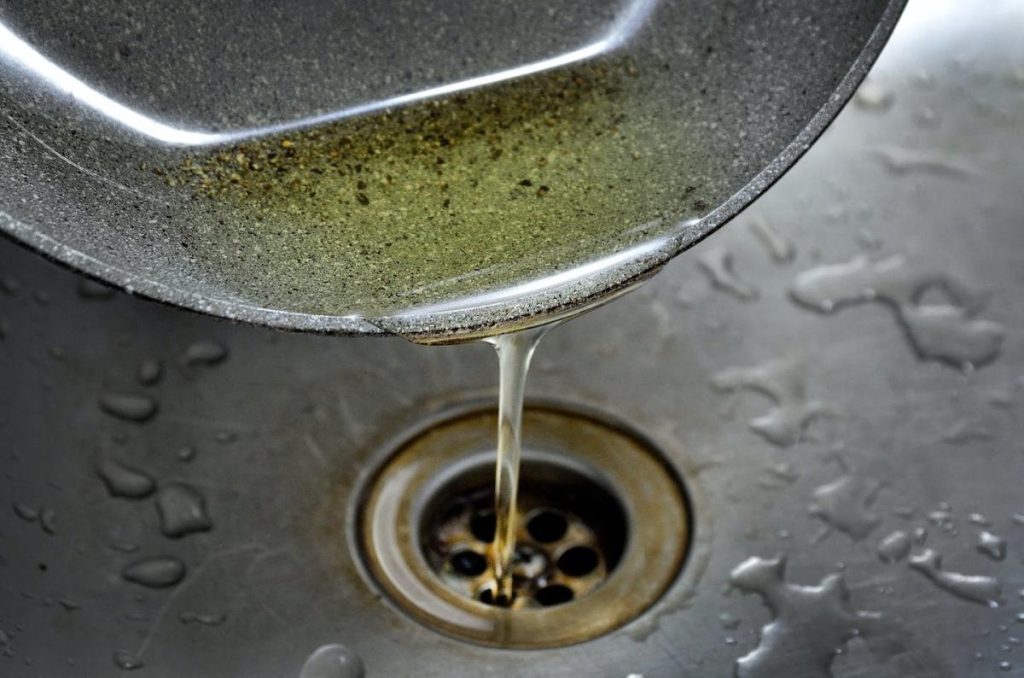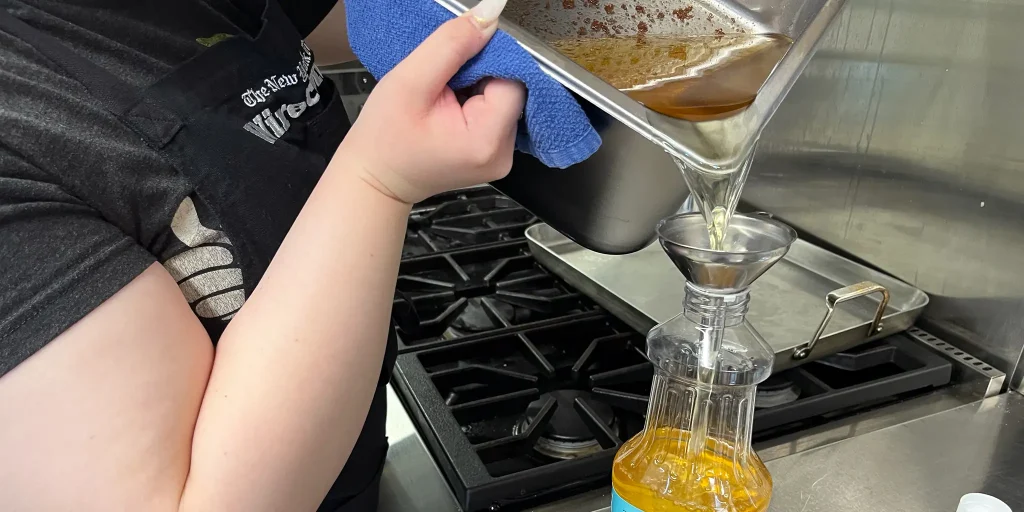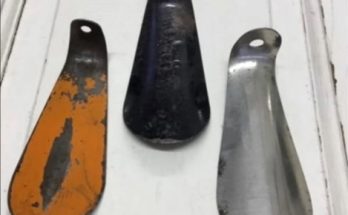Proper disposal of cooking oil is of great significance as it can impact both your home’s plumbing and the environment. Pouring oil down the sink can lead to pipe blockages and damage the drainage system, resulting in costly repairs.
Moreover, the accumulation of oil and grease can harm wastewater treatment facilities and wildlife. To avoid these issues, it’s best to find safe ways to dispose of the oil to safeguard both your home and the environment.

Reasons Not to Pour Oil Down the Kitchen Sink
- Clogged Pipes
When cooking oil is poured down the sink, it can adhere to the inner walls of the pipes. Over time, this can cause significant blockages, leading to poor drainage and potential plumbing problems. - Fatbergs
In the sewer system, the oil can combine with other waste products to form “fatbergs” – large, solid masses composed of fats, oils, grease, and non-biodegradable waste. These can cause extensive damage to the municipal sewer system and incur substantial repair costs. - Environmental Impact
Improper disposal of oil can have a detrimental effect on the environment. Sewage systems that overflow due to blockages can release contaminants into local waterways, harming aquatic life and polluting our drinking water. - Wildlife Harm
When oil enters natural water bodies, it can coat the feathers or fur of wildlife, affecting their insulation and buoyancy. This can be extremely harmful to animals exposed to polluted water. - Costly Repairs
The labor and expenses involved in unclogging pipes and fixing damaged sewer systems can be substantial. Taking preventive measures, such as proper oil disposal, can save homeowners and municipalities a significant amount of money in the long run.
Proper Methods for Disposing of Cooking Oil

- Reusing Oil
If the oil remains relatively clean after use, strain it and store it for future cooking. This reduces waste and maximizes the utility of your cooking oil. - Sealed Containers
Pour the used oil into a sealable container, such as an old jar or bottle, and discard it in the trash. This prevents the oil from entering the plumbing system and the landfill. - Recycling Programs
Many communities have recycling programs that accept used cooking oil. Check with your local authorities to see if there are recycling centers or collection events specifically for oil disposal. - Commercial Disposal
Some businesses specialize in collecting and disposing of used commercial cooking oil. They typically convert it into biodiesel, a cleaner alternative to fossil fuels.
Cooking oil disposal is not merely a household management task – it’s an environmental responsibility. Ensure you handle used cooking oil carefully to prevent plumbing problems and contribute to a healthier ecosystem. Taking the appropriate steps can protect your home and the world we inhabit.



